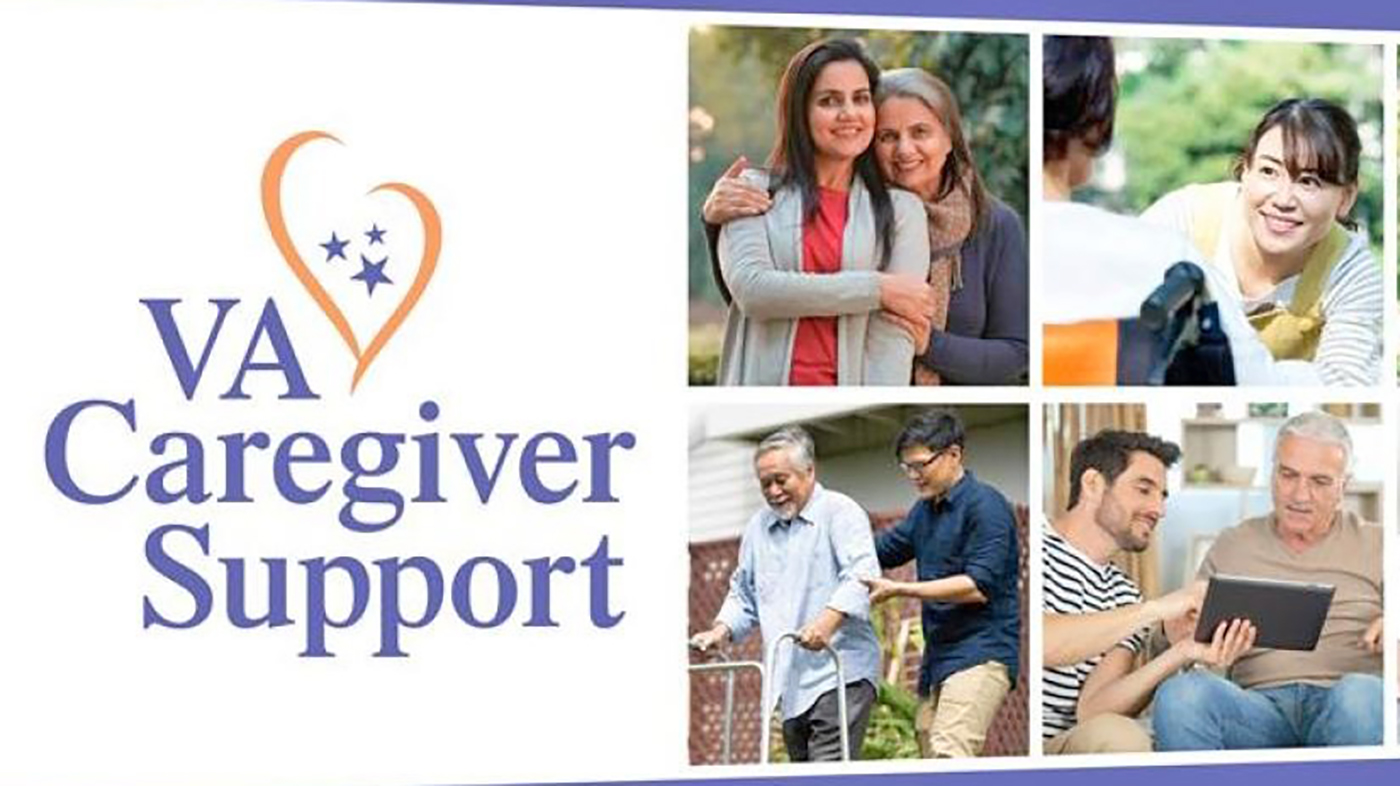Caregivers are vital to ensuring Veterans can live with dignity and independence. Caregivers can be family members managing medications or acts of daily living, close friends regularly taking a Veteran to appointments or a neighbor helping with grocery shopping.
The role of a caregiver is often both rewarding and challenging.
VA’s Caregiver Support Program (CSP) empowers caregivers with resources and guidance to help them care for themselves while caring for their Veterans.
CSP provides education, emotional support and fosters a sense of community among caregivers. As a part of this community, these resources enhance a caregiver’s ability to provide high-quality care to their Veteran while maintaining their own health and well-being.
Ron’s experience caring for his father, Lee, a World War II pilot, illustrates this journey. When Lee broke his hip, Ron stepped in as his primary caregiver. “He didn’t want to be in a nursing home,” Ron said. With his father resolved to age in his home and with his community, Ron was resolute. “I was going to make that happen.”
Determined to let his father age at home, Ron quit his job and moved in with Lee to provide full-time care. “Nothing could have prepared me for the challenging yet rewarding experience. I had no prior experience being a caregiver and it was overwhelming at first,” he shared.
He sought support from Salt Lake City VA CSP. They provided Ron with resources, including respite care, which is short-term relief for caregivers that allows them to take a break, run errands or go on vacation.
Lori Davis, a nurse on Ron’s caregiver support team, played a key role in his journey.
“Lori changed what I thought about VA by helping me navigate the health care system and providing care that went beyond Dad’s medical needs. She even helped me get him a new wheelchair. VA helped me care for him at home, where he was happiest, and it made all the difference,” he said.
A team to help caregivers at every step of the journey
Caregivers have a VA caregiver support team dedicated to helping them navigate VA health care and connect to a wider caregiver support community.
The CSP has been invaluable for Sharon, who sought help from Western Colorado VA while caring for her husband, Bob. “The programs and group sessions helped me understand Bob’s conditions and adapt as his conditions changed. I wouldn’t have been able to care for him without that understanding,” she shared.
Caregiving can be physically and emotionally taxing. The CSP ensures caregivers are never alone. This knowledge can bring a sense of relief and reassurance, knowing there is a support system in place.
No matter where a caregiver lives or when their Veteran served, VA ensures the dedication and sacrifices of caregivers are met with community, team, support and services.
How VA can help you
The CSP includes two programs. The Program of General Caregiver Support Services (PGCSS) offers skills training, peer mentoring and coaching for caregivers. The Program of Comprehensive Assistance for Family Caregivers (PCAFC) provides additional support for those caring for Veterans with severe service-related injuries or illnesses. This can include financial assistance.
VA is committed to caregivers and recognizes them as critical partners in Veteran health care. Every VA health care system has a CSP team to assist caregivers with information, training and support. VA is currently serving more caregivers than ever.
If you’re a caregiver for a Veteran, VA’s Caregivers Support Line (CSL) is also available at 1-855-260-3274 to provide information on available programs and connect you with local resources.
Visit VA Caregiver Support Program to learn more about available resources and how the CSP can support you in caring for your Veteran. All caregivers are encouraged to take advantage of these resources to help you provide the best care for your Veteran and yourself.
Topics in this story
More Stories
The program provides physical rehabilitation through telehealth, improving and sustaining physical function for older Veterans.
Our most recent annual report of Veteran suicide data highlights seven strategies to support Veterans.
Pain is like an alarm system; learn to reset the alarm with this 13-minute Mindfulness for Chronic Pain practice.






I am 83 year old veterans widow. He was 100% disabled. I have multiple healthcare problems and I wonder if I’m not find some kind of help for me because I can’t do the things I used to do.
The several topics I have clicked on, have been good learning experiences, thank you. It takes time to think things through. I keep the email contact information on reserve, grateful I can go back t them if I need to, for further information.
Thank you for sending info my way. It is so difficult to have the resources available to care for my spouse. I am grateful for any resources you can offer to help.
I believe the CSP is great for the veteran who has issues and needs support. However, if you are the veteran giving care to a spouse, my experience has been there is little or no support for the veteran who is the caregiver. I’m 100% and have tried to get help while in Atlanta and now in Mississippi. I have found nothing.
I am able to get support using our long term care policy and Medicare for some help but it would be nice for the VA to support the veteran caregiver. Thank you George
What about a Veteran who is a caregiver to his wife? Is there a program for the Veteran? It seems as if this article is for caregivers for Veterans, not for Veterans that are caregivers. Please comment. Thank you.
I just wanted to also give a big thank you for Caregivers support!
I never realised there was so much help for the caregivers. As a veteran in need of care, fortunately it’s mostly “simple” things, I am very happy to know that this is available.
Thank you for the articles that are useful in caring for aging Vets